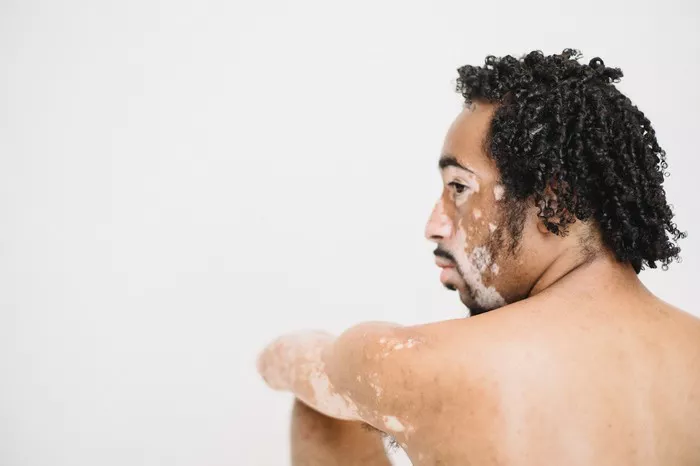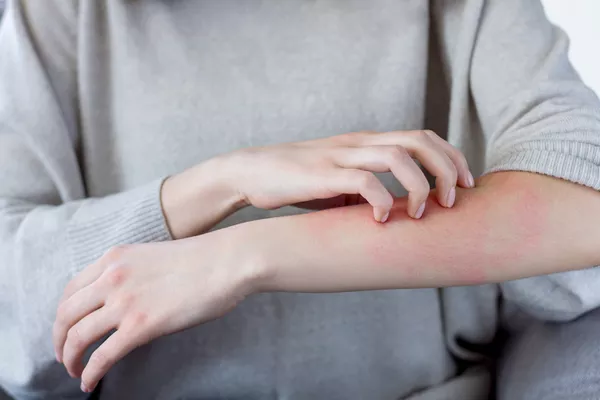Ringworm is a common fungal infection of the skin that, despite its name, has nothing to do with actual worms. The condition is caused by dermatophytes, a group of fungi that thrive on the keratin found in the outer layer of skin, hair, and nails. It typically manifests as a red, circular rash with a clearer or scaly center, giving it a ring-like appearance. Ringworm is highly contagious and can spread through direct skin contact with an infected person or animal, or by touching contaminated objects such as towels, clothing, or surfaces.
SEE ALSO: Can Ringworm Be Caused by Sweat?
Common Types of Ringworm
Athlete’s Foot (Tinea Pedis): This type of ringworm affects the feet, especially between the toes. It causes itching, burning, and cracked skin.
Jock Itch (Tinea Cruris): Commonly affects the groin area, inner thighs, and buttocks. It presents as a red, itchy rash that may have a raised, scaly border.
Scalp Ringworm (Tinea Capitis): Affects the scalp and hair follicles, leading to itchy, scaly patches of hair loss. It is more common in children than adults.
Body Ringworm (Tinea Corporis): Appears on the body, particularly on exposed areas like the arms, legs, and face. It manifests as a red, circular rash with a clear center.
Diagnosis
Ringworm can often be self-diagnosed based on its characteristic appearance. However, when the diagnosis is uncertain or the infection is widespread, a visit to a healthcare provider may be necessary. A doctor may examine the rash under a special light or take a skin scraping to confirm the presence of fungi.
Complications
If left untreated, ringworm can lead to more severe infections or spread to other parts of the body. Complications may include bacterial infections due to scratching, widespread fungal infection, or even permanent scarring and hair loss in cases of scalp ringworm.
OTC Ringworm Medications
Topical Antifungal Creams and Ointments
Over-the-counter (OTC) antifungal creams and ointments are the first line of treatment for ringworm. These medications work by killing the fungi or stopping their growth. Some of the most effective OTC options include:
Clotrimazole (Lotrimin AF): An antifungal cream that is effective against a variety of fungal infections, including athlete’s foot, jock itch, and body ringworm. Apply twice daily for 2-4 weeks.
Terbinafine (Lamisil AT): This cream is particularly effective for athlete’s foot and jock itch, offering relief within a week for many users. Apply once or twice daily as directed on the packaging.
Miconazole (Micatin): Another effective antifungal cream for various forms of ringworm. Apply twice daily until symptoms resolve.
Tolnaftate (Tinactin): A powder or cream that is often used to treat athlete’s foot and jock itch. It may be less potent than other options, but it’s suitable for preventing recurrences.
Comparison of Options
When comparing these medications, Terbinafine (Lamisil AT) is often considered the most effective, with a shorter treatment duration compared to others. Clotrimazole and Miconazole are versatile and widely available, making them good first choices. Tolnaftate is milder and may be preferred for individuals with sensitive skin or for use as a preventive measure.
Dosage and Application Instructions
Clotrimazole (Lotrimin AF): Apply a thin layer to the affected area twice daily. Continue use for at least one week after the rash has cleared.
Terbinafine (Lamisil AT): Apply a thin layer once or twice daily for one to two weeks, depending on the severity of the infection.
Miconazole (Micatin): Apply to the affected area twice daily. Treatment should continue for at least four weeks.
Tolnaftate (Tinactin): Apply twice daily for two to four weeks. It can also be used as a preventive measure by applying once daily after the infection has cleared.
Anti-fungal Shampoos
For scalp ringworm (Tinea Capitis), OTC antifungal shampoos can be an effective treatment option. These shampoos typically contain ingredients like Ketoconazole or Selenium Sulfide, which help reduce the fungal load on the scalp. Nizoral (Ketoconazole 1%) is a popular choice. Use the shampoo as directed, usually twice a week, in conjunction with an oral antifungal if prescribed by a doctor.
Home Remedies
In addition to OTC medications, some people find relief using home remedies such as:
Tea Tree Oil: Known for its antifungal properties, tea tree oil can be applied directly to the skin. Dilute with a carrier oil to avoid irritation.
Apple Cider Vinegar: With its antifungal effects, apple cider vinegar can be applied to the affected area with a cotton ball several times a day.
While these remedies may help alleviate symptoms, they are not a substitute for proven OTC treatments.
Prevention Tips
Hygiene Practices
Good hygiene is key to preventing ringworm. Wash your hands regularly, especially after touching animals or contaminated surfaces. Keep your skin clean and dry, especially in areas prone to sweating.
Sharing Items
Avoid sharing personal items such as towels, clothing, hairbrushes, and razors. Ringworm is highly contagious, and these items can easily spread the infection.
Treating Pets
Pets, particularly cats and dogs, can be carriers of ringworm. If your pet shows signs of a fungal infection (such as hair loss or scaly patches), take them to a veterinarian for treatment. This helps prevent the spread of ringworm to humans.
Conclusion
Managing ringworm effectively requires timely intervention with the right over-the-counter antifungal medication. Topical treatments, such as creams, ointments, and sprays, containing active ingredients like clotrimazole, miconazole, and terbinafine, are highly recommended for their efficacy in eliminating the fungus responsible for ringworm. These medications not only alleviate symptoms like itching and redness but also help to clear the infection over the course of several weeks. For more severe or widespread cases, oral antifungal options might be necessary, though these typically require a prescription. Understanding the types of OTC ringworm medicines available and their proper application is key to a swift recovery and preventing recurrence. By addressing ringworm promptly with the appropriate treatment, you can effectively manage this common fungal infection and maintain healthy, clear skin.
Related Topics:

























